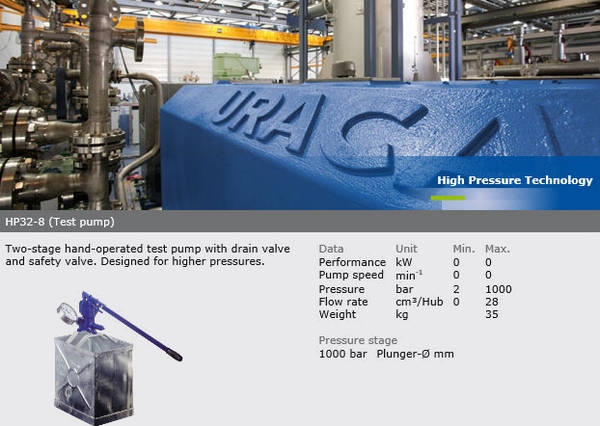Questions & Answers
Frequently Asked Questions
170-161 questions
Question 170.. spiral wound gasket sometimes like a satellite dish...
Hi Wern,
Why does the outer ring of a spiral wound gasket (with inner and outer rings) sometimes get warped (like a satellite dish) when installed?
What do you think?
Answer from Werner Sölken
I have seen the problem you describe many times. In almost all instances, the two flanges were somehow different. I have tended to see this problem at the first flange where a pipe connects to a piece of rotating equipment.
I have seen it in cases where I am positive that the correct gasket was used. I have also seen it in cases where I am positive that there was no interference with the studs.
However, since one of the two flange faces was "part" of the compressor or turbine, the dimension of the raised face may not have been identical. I believe it is a result of uneven forces on the two sides of the metal ring because the two flanges are not identical.
The first time I saw this I consulted with flange and gasket experts. One of them told me it was normal and not to worry about it. The other one told me it was a defective gasket and it must be replaced.
I replaced the gasket with a new one from a different source and it did the same thing.
Since then, I have seen it many times and have started listening to the first expert.
I don't worry about it. I have never had a leak or any other problem from one of these flange connections.
greetings Werner
Second answer from Werner Sölken
Today, May 24, 2017, I heard another serious version for this problem. I need to work out this new story before I can answer.
greetings Werner
The answer I received is everything that I give in my article ... no news
Question 169.. have you ever seen formulas weights buttweld fittings
Good morning !
A (probably somewhat odd) question for you, if I may.. have you ever seen formulas (plural because I'm assuming that there would need to be a different one for each different fitting or flange configuration)
which would allow a user to calculate the weights for items by supplying the fitting / flange diameters and the wall thickness (both in inches)?
I need to create an Excel spreadsheet from which weights can be drawn for 1/2" through 60" fittings and flanges in a myriad of different wall thicknesses...but using a PDF, a book or a website as a source for all the fittings / flanges that don't appear in, for instance, the Weldbend or Hackney / Ladish literature, would likely be mind-numbing and incredibly time consuming.
I guess I was hoping that there would be formulas that could generate the weights for all of the LR 90° elbows, SR 90° elbows, 45° elbows, Tees / Reducing Tees, Concs / Eccs, Caps, etc. based on the size and the wall thickness, so that I could cover almost all of the possible options without having to resort to a huge amount of manual data entry.
Have you ever seen or heard of such a thing? Any assistance you could provide would be greatly appreciated.
Answer from Werner Sölken
Hi, Mike Hammock
ASME buttweld fitting specifications do not specify weights for fittings. Buttweld Fitting Weights quoted in the tables on this website are based on manufacturers information and should be considered as approximate and provided as a guide only (fitting weights can vary considerably between manufacturers due to differences in construction).
Formula to calculate the weight of a Buttweld Fitting
I found some formulas on http://www.tkbend.co.kr/

I tested the formula Elbows, and the outcome is acceptable.
greetings Werner
Question 168.. we are searching for european din tables - measurements of spades
Dear supplier,
We are searching for European DIN - tables or DIN - measurements of spades.
Could you provide this to us please?
Thank you for your feedback.
With kind regards,
Christoph
Answer from Werner Sölken
Hello Christoph,
DIN standard for spades/spectacle blinds..
DIN 86042.. Spectacle blind flanges - Mating dimensions according to nominal pressures PN 10 and PN 16.
I do not have this standard, but I can probably help.
In my file "still to do" I found a .pdf that gives you the dimensions of DIN spades, by IDT Dichtungen.
pdf..
Dimensions DIN spades from IDT
website..
IDT Dichtungen
greetings Werner
Dear supplier,
Thank you for the received information.
This is very helpful.
With kind regards,
Answer from Werner Sölken
I'm not a supplier of all products that I mentioned on my website.
On most questions I get no answer, as I have answered the question.
Thanks for your response
greetings Werner
Question 167.. can you provide any recommendation for which of the two would be best?
Hi,
We are trying to figure out what will be the best branch connection to make on the wall of our hydraulic cylinder. To date we have welded a pipe into a socket made into the cylinder wall but our application is 24/7 continuous running and we think the cycling of the cylinder wall from low pressure to high pressure (up to 3000 psi) is pushing out the wall underneath the socket weld and fatiguing the weld with so many cycles and getting multiple failures.
We are trying to decide between making a weldolet (minimize stress concentration and provide integral reinforcement) or sweepolet (for low stresses and long fatigue life) connection to the side of the hydraulic cylinder moving forward for our application and which is better in our continuous cycling application.
Also, would either of these connection types require additional re-enforcement like they do with pressure vessel nozzle (re-enforcement pad picture below)?
The sweepolet makes specific reference to fatigue but still not certain which of the two branch connection concepts would be the absolute best for our application.
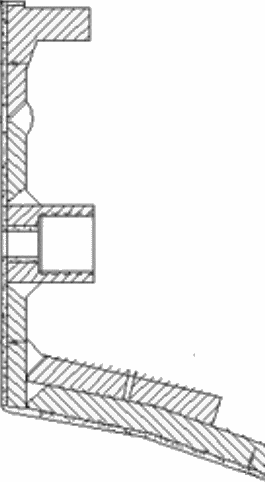
Can you provide any recommendation for which of the two would be best?
Where would one acquire such fittings in the Alberta, Canada area?
Regards
Evan
Answer from Werner Sölken
Hi Evan,
Above.. I have made your image a little smaller; but the question/answer remains the same.
See the sketch below.
The Full Penetration Welds, minimize stress concentration and provide integral reinforcement.
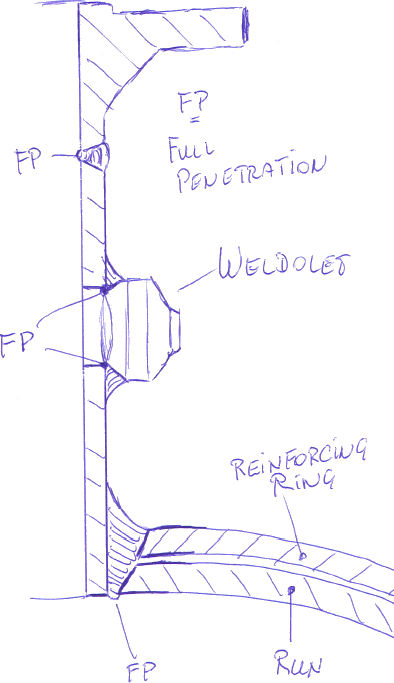
Question 2
I'm not familiar with suppliers in Alberta, Canada, but there will be no doubt someone, which you can supply the materials.
greetings Werner
Question 166.. thank you for featuring Sir M Visvesvaraya on your website
Regards
Prasad Kailaje
Answer from Werner Sölken
Sir Moksha Gundam Visvesvaraya, is the most extraordinary engineer of all time.
In my perspective hi was revolutionary.
greetings Werner
Question 165.. does B16.5-2013 have any requirements for tolerances on flange outside diameters?
Answer from Werner Sölken
Tolerances of flange outside diameters are not listed in ASME B16.5-2013
ASME B16.5 Pipe Flanges and Flanged Fittings
Published Interpretations July 3, 1990 says..
The ASME B16 Committee does not respond to questions about rational for requirements.
greetings Werner
Question 164.. Hi i'm pipeing university student and need some information about the attached flange
Dear sir
Hi i'm pipeing university student and need some information about the attached flange.
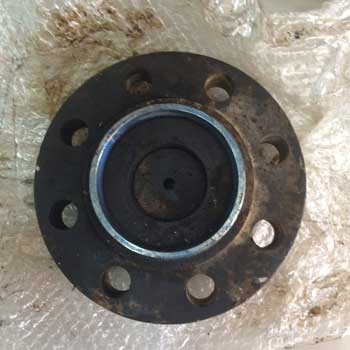
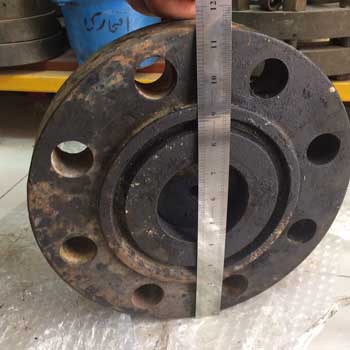
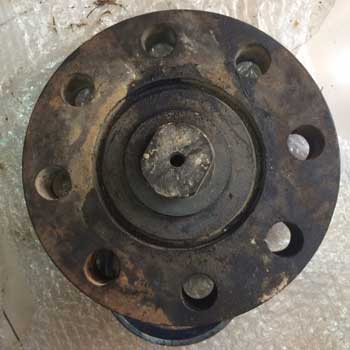
Specifications.. 4 1/16", BLRJ, R37, API 3000, 60K, P/N.. H126258.V, Made by italy
Could you help me about this flange please?
Thanks and best regards
Answer from Werner Sölken
Hi Amin,
I suspect it is a high pressure RTJ flange API 6B, 3000 PSI Working Pressure.
Look at..
Dimensions 6B Flanges API 6A 3000 PSI Working Pressure
scroll down to 4.1/16 on the left
greetings Werner
Question 163.. do you have any information, about elbows above 3r?
Hello Werner,
My Boss said he use to get pipe and it came in 3R or 6R for elbows of steel pipe.
I have only been able to find 3R and I have no Idea what the 3R and 6R rating would be or do to the pipe.
Do you have any information, or can point me in the right direction..
Steve Burgess
Answer from Werner Sölken
Hi Steve,
I have ONE boss, and that's my wife!
On page Elbows i write about elbows to 1.1/2D/3D.
Here below, for example, you will find the
center to face distance of NPS 2 elbows
(the A distance on the image)
1. 90°-LR.. = 1.1/2 x 2(NPS) x 25.4 A=76.2 mm
2. 180°-LR.. = 2 times the 90° LR elbow A=152.4 mm
3. 90°-SR.. = 2(NPS) x 25.4 A=50.8 mm
4. 180°-SR.. = 2 times the 90° SR elbow A=101.6 mm
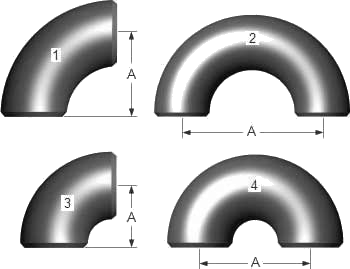
3D elbows as an example, are calculated with..
3(D) x 2(NPS) x 25.4
greetings Werner
Question 162.. my question should be incredibly simple
Hello Werner,
Thanks for a great reference site. After reading up on schedules and classes I can fully appreciate the need for a simple website. My question should be incredibly simple. If I thread schedule 40 pipe
does it become a fitting.. How do I get the pressure rating? Do I use the material and thread depth to get the wall size and then do the pressure
calculations? What if I buy threaded pipe (like nipples). If so, do pressure ratings on pipe really have any practical use if they will almost always be invalid once they are
installed (because the joining method will change the ratings)? The only process that I can think of where the rating stays the same is a compression fitting.
May I suggest a search function and date on your question page. This would really help.
Thanks again
Regards,
Rod Barham
Answer from Werner Sölken
Hi Rod,
In petrochemical industry, a threaded connection up to 1.1/2 inches is allowed... of course, depending on product and pressure class.
2in and higher are welded joints.
Simple question, simple answer..
In a pipe system, e.g. Schedule 40, use Schedule 80 threaded pipe nipples.
Remark(s) of the Author...
You knew that...?
- At the smallest sizes, the amount of wall lost during threading actually equals approximately 55% of the original pipe wall.
Look also at.. Threaded Fittings General and Pressure and Temperature Ratings of Seamless Pipes
greetings Werner
Question 161.. i would like to enquire regarding about high pressure water...
Hi,
I would like to enquire regarding about High pressure water testing hand pump.
Kindly could you able to advise us the pump that testing pressure shall be 250 Bar.
Regards
D.Thirupathi
